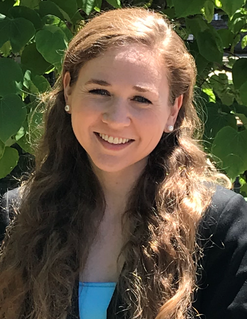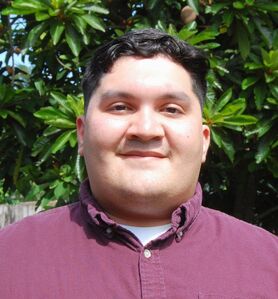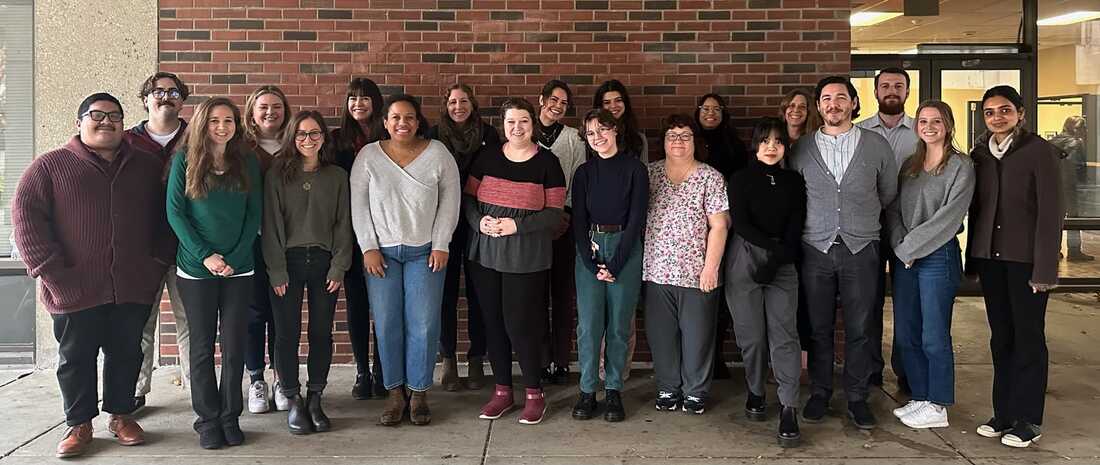Lab Director

Dr. Cheri A. Levinson, Ph.D. (She/Her)
Associate Professor
Clinical Psychology Ph.D.: Washington University, Department of Psychology
T32 Post-doctoral Fellowship: Washington University School of Medicine, Department of Psychiatry
Clinical Internship: University of North Carolina, Department of Psychiatry
Center for Excellence in Eating Disorders (CEED)
Dr. Cheri Levinson is an Associate Professor in the Department of Psychological and Brain Sciences and the Department of Pediatrics at the University of Louisville and Director of the Eating Anxiety Treatment (EAT) lab, which is based in Department of Psychological and Brain Sciences and the Department of Pediatrics, division of child and adolescent psychiatry. She is also the Founder and Clinical Director of the Louisville Center for Eating Disorders, which is the only eating disorder specialty clinic in the state of KY, where she treats patients, and supervises and trains other clinicians and students in evidence-based treatments for eating disorders. Currently Dr. Levinson is Vice Chair of the KY Eating Disorder Council, which is a state sponsored council charged with improving eating disorder treatment and access to treatment in KY.
Dr. Levinson’s research focuses on building new treatments for eating disorders, primarily using new technologies. To do this work she uses advanced analytics and technologies, such as individual network analysis, ecological momentary assessment, and wearable sensor technologies. Dr. Levinson has published more than 130 peer-reviewed manuscripts and chapters and has been the primary investigator on several national grants and awards, including three active clinical trials testing exposure therapy and personalized treatments for eating disorders. She has received several awards for her work including the 2021 Association for Psychological Science Rising Star Award, 2020 American Psychological Association Theo Blau Award, and the Academy for Eating Disorders 2015 Outstanding Scientific Contribution Award.
Dr. Levinson’s clinical works focuses on the treatment of adults, adolescents, and children with eating disorders. She specializes in the treatment of comorbid disorders (eating disorders, OCD and anxiety disorders) using empirically supported cognitive-behavioral techniques. Dr. Levinson has worked in all levels of eating disorder care, including outpatient, partial-hospitalization, residential, and inpatient care.
Before moving home to Louisville, Dr. Levinson trained at the University of North Carolina Center of Excellence in Eating Disorders (CEED). While at CEED, she trained in cognitive behavioral therapies, dialectical behavior therapy, family based therapy for adolescents with anorexia nervosa, acceptance and commitment therapy, and mindfulness therapies for eating disorders. Dr. Levinson was a post-doctoral fellow at the Washington University in St. Louis School of Medicine Department of Psychiatry, where she developed technology based treatments for eating disorders. She completed her clinical internship at the University of North Carolina School of Medicine. She received her Master’s and Doctoral degrees in the psychology department at Washington University in St. Louis. She completed her undergraduate degree in psychology and history at the University of Kentucky.
To see Dr. Levinson's CV, please click here: levinson_cv.doc
Associate Professor
Clinical Psychology Ph.D.: Washington University, Department of Psychology
T32 Post-doctoral Fellowship: Washington University School of Medicine, Department of Psychiatry
Clinical Internship: University of North Carolina, Department of Psychiatry
Center for Excellence in Eating Disorders (CEED)
Dr. Cheri Levinson is an Associate Professor in the Department of Psychological and Brain Sciences and the Department of Pediatrics at the University of Louisville and Director of the Eating Anxiety Treatment (EAT) lab, which is based in Department of Psychological and Brain Sciences and the Department of Pediatrics, division of child and adolescent psychiatry. She is also the Founder and Clinical Director of the Louisville Center for Eating Disorders, which is the only eating disorder specialty clinic in the state of KY, where she treats patients, and supervises and trains other clinicians and students in evidence-based treatments for eating disorders. Currently Dr. Levinson is Vice Chair of the KY Eating Disorder Council, which is a state sponsored council charged with improving eating disorder treatment and access to treatment in KY.
Dr. Levinson’s research focuses on building new treatments for eating disorders, primarily using new technologies. To do this work she uses advanced analytics and technologies, such as individual network analysis, ecological momentary assessment, and wearable sensor technologies. Dr. Levinson has published more than 130 peer-reviewed manuscripts and chapters and has been the primary investigator on several national grants and awards, including three active clinical trials testing exposure therapy and personalized treatments for eating disorders. She has received several awards for her work including the 2021 Association for Psychological Science Rising Star Award, 2020 American Psychological Association Theo Blau Award, and the Academy for Eating Disorders 2015 Outstanding Scientific Contribution Award.
Dr. Levinson’s clinical works focuses on the treatment of adults, adolescents, and children with eating disorders. She specializes in the treatment of comorbid disorders (eating disorders, OCD and anxiety disorders) using empirically supported cognitive-behavioral techniques. Dr. Levinson has worked in all levels of eating disorder care, including outpatient, partial-hospitalization, residential, and inpatient care.
Before moving home to Louisville, Dr. Levinson trained at the University of North Carolina Center of Excellence in Eating Disorders (CEED). While at CEED, she trained in cognitive behavioral therapies, dialectical behavior therapy, family based therapy for adolescents with anorexia nervosa, acceptance and commitment therapy, and mindfulness therapies for eating disorders. Dr. Levinson was a post-doctoral fellow at the Washington University in St. Louis School of Medicine Department of Psychiatry, where she developed technology based treatments for eating disorders. She completed her clinical internship at the University of North Carolina School of Medicine. She received her Master’s and Doctoral degrees in the psychology department at Washington University in St. Louis. She completed her undergraduate degree in psychology and history at the University of Kentucky.
To see Dr. Levinson's CV, please click here: levinson_cv.doc
Faculty

Dr. Christina Ralph-Nearman, Ph.D. (She/Her)
Dr. Ralph-Nearman is an Assistant Research Professor in the EAT Lab in the Department of Psychological and Brain Sciences at the University of Louisville focused on developing innovative and effective digital therapeutics to address eating disorders within individuals everyday life. Dr. Ralph-Nearman became a Cognitive and Experimental Psychologist in 2018, after receiving the University of Nottingham Vice-Chancellor’s Ph.D. Scholarship for Research Excellence, academic scholarships for her M.S. in Neuroimaging and Clinical Neuropsychology (with distinction), and B.S. in Psychology (summa cum laude). Her main research focuses are: 1) Developing innovative tools with objective methods that implicitly detect, assess, prevent, and treat eating disorders; 2) Identifying individual differences, cognitive-affective, and physiological underlying mechanisms, and illness trajectory of eating disorders. Dr. Ralph-Nearman’s co-invention and development of Somatomap (a multi-platform 2D/3D body image assessment tool) has been recognized by the Academy for Eating Disorders with the ‘2020 Early Career Abstract Award’ and the ‘2017 Young Investigators Award’. Additionally, her work has received two American Psychological Association early career awards, the University of Nottingham’s ‘Highly Commended Teaching Award’, multiple research grants such as PRePARE, KYNETIC, and the NSF. Recently she has been recognized by the University of Louisville as 2023 Trailblazer Award for Innovation and Entrepreneurship for her work. Dr. Ralph-Nearman enjoys life, including laughing with family/friends, traveling, the beach, bonfires, hiking, coffee + deep talks, good food, spinning, and is a huge believer in kindness.
Representative publications:
Dr. Ralph-Nearman is an Assistant Research Professor in the EAT Lab in the Department of Psychological and Brain Sciences at the University of Louisville focused on developing innovative and effective digital therapeutics to address eating disorders within individuals everyday life. Dr. Ralph-Nearman became a Cognitive and Experimental Psychologist in 2018, after receiving the University of Nottingham Vice-Chancellor’s Ph.D. Scholarship for Research Excellence, academic scholarships for her M.S. in Neuroimaging and Clinical Neuropsychology (with distinction), and B.S. in Psychology (summa cum laude). Her main research focuses are: 1) Developing innovative tools with objective methods that implicitly detect, assess, prevent, and treat eating disorders; 2) Identifying individual differences, cognitive-affective, and physiological underlying mechanisms, and illness trajectory of eating disorders. Dr. Ralph-Nearman’s co-invention and development of Somatomap (a multi-platform 2D/3D body image assessment tool) has been recognized by the Academy for Eating Disorders with the ‘2020 Early Career Abstract Award’ and the ‘2017 Young Investigators Award’. Additionally, her work has received two American Psychological Association early career awards, the University of Nottingham’s ‘Highly Commended Teaching Award’, multiple research grants such as PRePARE, KYNETIC, and the NSF. Recently she has been recognized by the University of Louisville as 2023 Trailblazer Award for Innovation and Entrepreneurship for her work. Dr. Ralph-Nearman enjoys life, including laughing with family/friends, traveling, the beach, bonfires, hiking, coffee + deep talks, good food, spinning, and is a huge believer in kindness.
Representative publications:
- Ralph-Nearman, C., +Sandoval-Araujo, L. E., Karem, A., Cusack, C. E., +Glatt, S., +Hooper, M. A., +Rodriguez Pena, C., Cohen, D., +Allen, S., Cash, E. D., Welch, K., Levinson, C. A. (2023). Using machine learning with passive wearable sensors to pilot the detection of eating disorder behaviors in everyday life. Psychological Medicine, 1-7. https://www.doi.10.1017/S003329172300288X.
- Ralph-Nearman, C., Williams, B. M., Ortiz, A.M.L., Smith, A. R., & Levinson, C. A. (2021). Pinpointing core and pathway symptoms among sleep disturbance, anxiety, worry, and eating disorder symptoms in anorexia nervosa and atypical anorexia nervosa. https://doi.org/10.1016/j.jad.2021.06.061
- Ralph-Nearman, C., Arevian, A.C., Moseman, S., Sinik, M., Chappelle, S., Feusner, J.D., & Khalsa, S.S. (2021). Visual mapping of body image disturbance in anorexia nervosa reveals objective markers of illness severity. Scientific Reports, 11, 12262. https://doi.org/10.1038/s41598-021-90739-w
- Ralph-Nearman, C., & Filik, R. (2020). Development and validation of new figural scales for female body dissatisfaction assessment on two dimensions: thin-ideal and muscularity-ideal. BMC Public Health, 20(1), 1-11. https://doi.org/10.1186/s12889-020-09094-6
- Ralph‐Nearman, C., & Filik, R. (2018). Eating disorder symptomatology and body mass index are associated with readers' expectations about character behavior: Evidence from eye‐tracking during reading. International Journal of Eating Disorders, 51(9), 1070-1079. https://doi.org/10.1002/eat.22961
- Ralph-Nearman, C., & Filik, R. (2018). New body scales reveal body dissatisfaction, thin-ideal, and muscularity-ideal in males. American Journal of Men's Health, 12(4), 240-250. https://doi.org/10.1177.1557988318763516

Dr. Nicholas C. Peiper, Ph.D., MPH (He/Him)
Dr. Nicholas Peiper is an Associate Professor of Epidemiology & Population Health at the University of Louisville (UofL) and Principal Scientist in the Eating Anxiety Treatment (EAT) Lab based in UofL’s Department of Psychological & Brain Sciences. He is also the Chair of the Research Subcommittee for the Kentucky Eating Disorder Council, which is a state sponsored council dedicated to improving eating disorder interventions in Kentucky. His current work focuses on investigating the epidemiology and population burden of eating disorders as well as implementing scalable digital mental health interventions (DMHI).
Prior to joining the EAT Lab in November 2023, Dr. Peiper was Director of Research at Meru Health, where he directed an interdisciplinary team of scientists and served as Principal Investigator (PI) of a National Institutes of Health (NIH)-funded study to investigate the real-world effectiveness of a therapist-supported DMHI in primary care. Dr. Peiper previously worked at the Pacific Institute for Research & Evaluation and RTI International where he was PI and Project Director of numerous behavioral health intervention studies sponsored by the NIH, Substance Abuse & Mental Health Services Administration (SAMHSA), Centers for Disease Control & Prevention (CDC), Health Resources & Services Administration (HRSA), and Bureau of Justice Assistance (BJA).
Dr. Nicholas Peiper is an Associate Professor of Epidemiology & Population Health at the University of Louisville (UofL) and Principal Scientist in the Eating Anxiety Treatment (EAT) Lab based in UofL’s Department of Psychological & Brain Sciences. He is also the Chair of the Research Subcommittee for the Kentucky Eating Disorder Council, which is a state sponsored council dedicated to improving eating disorder interventions in Kentucky. His current work focuses on investigating the epidemiology and population burden of eating disorders as well as implementing scalable digital mental health interventions (DMHI).
Prior to joining the EAT Lab in November 2023, Dr. Peiper was Director of Research at Meru Health, where he directed an interdisciplinary team of scientists and served as Principal Investigator (PI) of a National Institutes of Health (NIH)-funded study to investigate the real-world effectiveness of a therapist-supported DMHI in primary care. Dr. Peiper previously worked at the Pacific Institute for Research & Evaluation and RTI International where he was PI and Project Director of numerous behavioral health intervention studies sponsored by the NIH, Substance Abuse & Mental Health Services Administration (SAMHSA), Centers for Disease Control & Prevention (CDC), Health Resources & Services Administration (HRSA), and Bureau of Justice Assistance (BJA).
Postdoctoral Fellows

Rachel Butler, Ph.D. (She/Her)
Rachel Butler is a Postdoctoral Fellow in the EAT Lab in the Department of Psychological and Brain Sciences at the University of Louisville. Rachel completed her Ph.D. in Clinical Psychology at Temple University and completed her predoctoral internship at the UCSD Eating Disorder Center for Treatment and Research. Her research focuses on the development and improvement of treatments for anxiety and eating disorders. In particular, she is interested in testing novel, exposure-based interventions for eating disorders. Rachel received the APA Dissertation Research Award for her work investigating imaginal exposure as an intervention for disordered eating related fears. Additionally, Rachel hopes to expand the understanding and treatment of eating and anxiety disorders in sexual and gender minority populations. Rachel is passionate about working with individuals with eating and anxiety disorders clinically as well as teaching and mentoring students. In her free time, Rachel loves riding mountain bikes, racing cyclocross, baking, and stand up comedy.
Representative publications:
Rachel Butler is a Postdoctoral Fellow in the EAT Lab in the Department of Psychological and Brain Sciences at the University of Louisville. Rachel completed her Ph.D. in Clinical Psychology at Temple University and completed her predoctoral internship at the UCSD Eating Disorder Center for Treatment and Research. Her research focuses on the development and improvement of treatments for anxiety and eating disorders. In particular, she is interested in testing novel, exposure-based interventions for eating disorders. Rachel received the APA Dissertation Research Award for her work investigating imaginal exposure as an intervention for disordered eating related fears. Additionally, Rachel hopes to expand the understanding and treatment of eating and anxiety disorders in sexual and gender minority populations. Rachel is passionate about working with individuals with eating and anxiety disorders clinically as well as teaching and mentoring students. In her free time, Rachel loves riding mountain bikes, racing cyclocross, baking, and stand up comedy.
Representative publications:
- Manasse, S.M., Lampe, E.W., Abber, S.R., Butler, R.M., Gillikin, L.M., & Trainor, C. (2021). Exposure-enhanced cognitive behavioral therapy for adolescents with binge eating: An initial case series, Clinical Child Psychology and Psychiatry, 26, 1124-1136.
- Horenstein, A., Kaplan, S.C., Butler, R.M., Heimberg, R.G. (2020) Social anxiety moderates the relationship between body mass index and motivation to avoid exercise. Body Image, 36, 185-192.
- Butler, R.M., O’Day, E.B., Swee, M.B., Horenstein, A., Heimberg, R.G. (2020) Cognitive behavioral therapy for social anxiety disorder: Predictors of treatment outcome in a quasi-naturalistic setting. Behavior Therapy, 52, 465-477.
- Butler, R.M., Heimberg, R.G. (2020) Exposure therapy for eating disorders: A systematic review. Clinical Psychology Review, 78, 1-10.
- Butler, R.M., O’Day, E.B., Kaplan, S.C., Swee, M.B., Horenstein, A., Morrison, A.S., Goldin, P.R., Gross, J.J., Heimberg, R.G. (2019). Do sudden gains predict treatment outcome in social anxiety disorder? Findings from two randomized controlled trials. Behavior Research and Therapy, 121, 103453.
- Butler, R.M., Horenstein, A., Gitlin, M., Testa, R.J., Kaplan, S.C., Swee, M.B., Heimberg, R.G. (2019). Social anxiety among transgender and gender nonconforming individuals: The role of gender affirming medical interventions. Journal of Abnormal Psychology, 128, 25-31.
- Butler, R.M., Boden, M.T., Olino, T.M., Morrison, A.S., Goldin, P.R., Gross, J.J., & Heimberg, R.G. (2018). Emotional clarity and attention to emotions in cognitive behavioral group therapy and mindfulness-based stress reduction for social anxiety disorder. Journal of Anxiety Disorders, 55, 31-38.

Hannah Fitterman-Harris, Ph.D. (She/Her)
Dr. Fitterman-Harris is a Postdoctoral Fellow in the EAT Lab in the Department of Psychological and Brain Sciences at the University of Louisville. She earned her PhD in Clinical Psychology at Saint Louis University and completed her predoctoral internship at the University of Florida Health Science Center. Dr. Fitterman-Harris’s primary research and clinical interests include the intersection of weight stigma and eating disorders, assessment and reduction of weight stigma (particularly weight stigma in healthcare settings), prevention and treatment of eating disorders, and the intersection of sleep, weight stigma, and eating disorders. Dr. Fitterman-Harris received the Saint Louis University Dissertation Fellowship to support her research to create and validate an instrument to assess weight stigma among healthcare providers. She also received the RSH Scholarship through the Academy for Eating Disorders to support her work more broadly in the reduction of weight stigma and treatment of eating disorders. Dr. Fitterman-Harris enjoys watching hockey and baking shows, knitting hats, and anything involving golden retrievers.
Representative publications:
Dr. Fitterman-Harris is a Postdoctoral Fellow in the EAT Lab in the Department of Psychological and Brain Sciences at the University of Louisville. She earned her PhD in Clinical Psychology at Saint Louis University and completed her predoctoral internship at the University of Florida Health Science Center. Dr. Fitterman-Harris’s primary research and clinical interests include the intersection of weight stigma and eating disorders, assessment and reduction of weight stigma (particularly weight stigma in healthcare settings), prevention and treatment of eating disorders, and the intersection of sleep, weight stigma, and eating disorders. Dr. Fitterman-Harris received the Saint Louis University Dissertation Fellowship to support her research to create and validate an instrument to assess weight stigma among healthcare providers. She also received the RSH Scholarship through the Academy for Eating Disorders to support her work more broadly in the reduction of weight stigma and treatment of eating disorders. Dr. Fitterman-Harris enjoys watching hockey and baking shows, knitting hats, and anything involving golden retrievers.
Representative publications:
- Fitterman-Harris, H. F., Han, Y., Osborn, K. D., Faulkner, L. M., Williams, B. M., Pennesi, J.-L., & Levinson, C. A. (2024). Comparisons between atypical anorexia nervosa and anorexia nervosa: Psychological and comorbidity patterns. International Journal of Eating Disorders.
- Fitterman-Harris, H. F., Davis, G. G., Bedard, S. P., Cusack, C. E., & Levinson, C. A. (2024). Digital mental health interventions: Differences in intervention framing. International Journal of Environmental Research and Public Health, 21(1), 24. https://doi.org/10.3390/ijerph21010024
- Levinson, C. A., Fitterman-Harris, H. F., Patterson, S., Harrop, E., Turner, C., May, M., Steinberg, D., Muhlheim, L., Millner, R., Trujillo-ChiVacuan, E., Averyt, J., Peebles, R., Rosenbluth, S., & Becker, C. B. (2023). The unintentional harms of weight management treatment: Time for a change. The Behavior Therapist, 46(7), 271-281.
- Pearl, R. L., Wadden, T. A., Groshon, L. C., Fitterman-Harris, H. F., Bach, C., & LaFata, E. M. (2023). Refining the conceptualization and assessment of internalized weight stigma: A mixed methods approach. Body Image, 44, 93-102. https://doi.org/10.1016/j.bodyim. 2022.12.002
- Stiles, D. L., Ma, L., Fitterman-Harris, H. F., Naseralla, E. J., & Rudolph, C. W. (2022). Body dissatisfaction and romantic relationship quality: A meta-analysis. Journal of Social and Personal Relationships. https://doi.org/10.1177/02654075221128504
- Fitterman-Harris, H. F., Hughes, H. M., Soulliard, Z. A., Zane, K. (2022). Barriers to LGBQ- and TGNB-affirmative clinical training in psychology doctoral programs. Psychology of Sexual Orientation and Gender Diversity. https://doi.org/10.1037/sgd0000565
- Fitterman-Harris, H. F., & Vander Wal, J. S. (2021). Weight bias reduction among first-year medical students: A quasi-randomized, controlled trial. Clinical Obesity, e12479. https://doi.org/10.1111/cob.12479
- Soulliard, Z. A., Fitterman-Harris, H. F., Perry, J. E., Poe, L., & Ross, M. J. (2021). Differences in body appreciation and functionality appreciation outside of and directly following sport among collegiate student athletes. The Sport Psychologist, 35(4), 320-328. https://doi.org/10.1123/tsp.2020-0175
- Smith, L. B., Foster, N., Bollepalli, S., Fitterman-Harris, H. F., & Rancourt, D. (2020). An examination of sex differences in a disease-specific model of disordered eating behaviors in type 1 diabetes. Journal of Pediatric Psychology, 45(1), 91-100. https://doi.org/10.1093/jpepsy/jsz090

Anna Marie Ortiz, Ph.D.
Dr. Ortiz is a Postdoctoral Fellow in the EAT lab. She earned her Ph.D. in Clinical Psychology from the University of Kentucky and completed her pre-doctoral internship at Penn State Hershey Medical Center. Dr. Ortiz’s research focuses on investigating the cognitive and affective factors that contribute to the etiology and maintenance of eating disorders, developing more effective treatments for eating disorders, and improving treatment outcomes. She is also passionate about her role as a clinician working with individuals with eating disorders. In her free time, Dr. Ortiz enjoys hiking, spending time with her nieces and nephews, playing basketball, and doing puzzles.
Representative Publication:
Dr. Ortiz is a Postdoctoral Fellow in the EAT lab. She earned her Ph.D. in Clinical Psychology from the University of Kentucky and completed her pre-doctoral internship at Penn State Hershey Medical Center. Dr. Ortiz’s research focuses on investigating the cognitive and affective factors that contribute to the etiology and maintenance of eating disorders, developing more effective treatments for eating disorders, and improving treatment outcomes. She is also passionate about her role as a clinician working with individuals with eating disorders. In her free time, Dr. Ortiz enjoys hiking, spending time with her nieces and nephews, playing basketball, and doing puzzles.
Representative Publication:
- Ralph-Nearman, C., Williams, B. M., Ortiz, A. M. L., Smith, A. R., & Levinson, C. A. (2021). Pinpointing Core and Pathway Symptoms Among Sleep Disturbance, Anxiety, Worry, and Eating Disorder Symptoms In Anorexia Nervosa and Atypical Anorexia Nervosa. Journal of Affective Disorders.
- Ortiz, A. M. L., Davis, H. A., Riley, E. R., & Smith, G. T. (2021). The interaction between affective lability and eating expectancies predicts binge eating. Eating Disorders: The Journal of Treatment and Prevention.
- Christian, C., Bridges-Curry, Z., Hunt, R.A., Ortiz, A.M.L., Drake, J.E., Levinson, C.A. (2021). Latent profile analysis of impulsivity and perfectionism dimensions and associations with psychiatric symptoms. Journal of Affective Disorders, 283, 293-301.
- Atkinson, E. A., Ortiz, A. M. L., & Smith, G. T. (2020). Affective risk for problem drinking: reciprocal influences among negative urgency, affective lability, and rumination. Current Drug Research Review, 12(1), 42-51.
- Davis, H. A., Ortiz, A. M. L., & Smith, G. T. (2019). Transactions between early binge eating and personality predict transdiagnostic risk. European Eating Disorders Review. 27(6), 614-627.
- Ortiz, A. M. L., Davis, H. A., & Smith, G. T. (2019). Transactions among thinness expectancies, depression, and binge eating in the prediction of adolescent weight control behaviors. International Journal of Eating Disorders, 52(2), 142-152.
- Davis, H. A., Ortiz, A. M. L., & Smith, G. T. (2017). The occurrence and covariation of binge eating and compensatory behaviors across early to mid-adolescence. Journal of Pediatric Psychology, 43(4), 402-412.

Amara Tanweer, Psy.D.
Amara Tanweer is a Postdoctoral Fellow in the EAT Lab in the Department of Psychological and Brain Sciences at the University of Louisville. Amara completed her Psy.D. in Clinical Psychology at Adler University and has experience working with individuals in different settings including college counseling, private practice, residential facilities, and community mental health. Her areas of focus encompass body image, eating disorders, anxiety, trauma, self-esteem, attachment, and identity. She is passionate about her clinical work with clients as well as teaching and mentoring students. In her free time, Amara loves crafting, watching anime, reading fiction books, and spending time with her cats and huskies.
Amara Tanweer is a Postdoctoral Fellow in the EAT Lab in the Department of Psychological and Brain Sciences at the University of Louisville. Amara completed her Psy.D. in Clinical Psychology at Adler University and has experience working with individuals in different settings including college counseling, private practice, residential facilities, and community mental health. Her areas of focus encompass body image, eating disorders, anxiety, trauma, self-esteem, attachment, and identity. She is passionate about her clinical work with clients as well as teaching and mentoring students. In her free time, Amara loves crafting, watching anime, reading fiction books, and spending time with her cats and huskies.

Aubrey Hoffer, Ph.D. (She/Her)
Dr. Hoffer is a Postdoctoral Fellow in the EAT lab. She earned her Ph.D. in Family and Human Development from Arizona State University. Dr. Hoffer's research focuses on understanding the cognitive processes that underlie body image development. In particular, she is interested in developing new theories about body image. In her free time, Dr. Hoffer enjoys fighting, spending time with her husband Josh and dog Butters, playing video games, and reading.
Dr. Hoffer is a Postdoctoral Fellow in the EAT lab. She earned her Ph.D. in Family and Human Development from Arizona State University. Dr. Hoffer's research focuses on understanding the cognitive processes that underlie body image development. In particular, she is interested in developing new theories about body image. In her free time, Dr. Hoffer enjoys fighting, spending time with her husband Josh and dog Butters, playing video games, and reading.
Graduate Students

Caroline Christian, M.S. (She/Her)
Caroline Christian (M.S., University of Louisville) is a 5th year graduate student in the EAT Lab and is preparing to start her clinical internship in 2023-2024. Caroline's research focuses on integrating novel methods to better understand the role of transdiagnostic factors (e.g., fear and avoidance) in eating disorders and comorbid anxiety-based disorders. She is especially interested in testing these processes across critical periods (e.g., pregnancy/postpartum; stages of remission) to inform prevention, treatment, and relapse prevention interventions. Caroline has worked clinically with eating disorders and anxiety-based disorders through the Psychological Services Center, Lindner Center of Hope, the Louisville OCD Clinic, and the Louisville Center for Eating Disorders, through which she received training in CBT, DBT, radically open DBT, acceptance and commitment therapy, and exposure-based therapies. In her free time, Caroline enjoys taking her dog Lincoln to the park, playing tennis, and making pottery.
Representative Publications:
Caroline Christian (M.S., University of Louisville) is a 5th year graduate student in the EAT Lab and is preparing to start her clinical internship in 2023-2024. Caroline's research focuses on integrating novel methods to better understand the role of transdiagnostic factors (e.g., fear and avoidance) in eating disorders and comorbid anxiety-based disorders. She is especially interested in testing these processes across critical periods (e.g., pregnancy/postpartum; stages of remission) to inform prevention, treatment, and relapse prevention interventions. Caroline has worked clinically with eating disorders and anxiety-based disorders through the Psychological Services Center, Lindner Center of Hope, the Louisville OCD Clinic, and the Louisville Center for Eating Disorders, through which she received training in CBT, DBT, radically open DBT, acceptance and commitment therapy, and exposure-based therapies. In her free time, Caroline enjoys taking her dog Lincoln to the park, playing tennis, and making pottery.
Representative Publications:
- Christian, C., Cusack, C.E., Ralph-Nearman, C., Spoor, S.P., Hunt, R.A., Levinson, C.A. (in press). A pilot, time-series investigation of depression, anxiety, and eating disorder symptoms in adults experiencing major depressive symptoms: The need for eating disorder assessment and research in depression. Behavior Therapy.
- Christian, C., Levinson, C.A. (2022). An integrated review of fear and avoidance learning in anxiety disorders and application to eating disorders. New Ideas in Psychology. DOI: 10.1016/j.newideapsych.2022.100964
- Christian, C., Cash, E., Cohen, D.A., Trombley, C.M., Levinson, C.A. (2022). Electrodermal activity and heart rate variability during exposure fear scripts predict trait-level and momentary social anxiety and eating disorder symptoms in an analogue sample. Clinical Psychological Science.
- Christian, C., Bridges-Curry, Z., Hunt, R.A., Ortiz, A.M.L., Drake, J.E., Levinson, C.A. (2021). Latent profile analysis of impulsivity and perfectionism dimensions and associations with psychiatric symptoms. Journal of Affective Disorders. DOI: 10.1016/j.jad.2021.01.076
- Christian, C., Perko, V. L., Vanzhula, I.A., Tregarthen, J.P., Forbush, K.T., Levinson, C. A. (2019). Eating Disorder Core Symptoms and Symptom Pathways across Developmental Stages: A Network Analysis. Journal of Abnormal Psychology. DOI: 10.1037/abn0000477
- Christian, C., Brosof, L. C., Vanzhula I.A., Williams, B. M., Shankar Ram, S., Levinson, C. A. (2019). Implementation of a dissonance-based, eating disorder prevention program and investigation of eating disorder comorbidities and risk factors in southern, all-female high schools. Body Image. DOI: 10.1016/j.bodyim.2019.05.003

Brenna Williams, M.S. (She/Her)
Brenna Williams (B.A. Southern Methodist University, M.S. University of Louisville) is a doctoral candidate in the EAT Lab. Brenna is interested in studying self-relations, such as self-criticism and self-compassion, as transdiagnostic factors that contribute to the high rates of psychiatric comorbidity among eating disorders. She is passionate about studying the impact of self-criticism and self-compassion on eating disorder symptoms and the integration of compassion-focused interventions for eating disorders. Through her research, she hopes to develop transdiagnostic treatments for eating disorders that target eating disorders and other co-occurring symptoms of psychopathology (e.g., anxiety, depression) simultaneously. Brenna has also received clinical training in sleep disorders, and she is currently a practicum student at the Behavioral Wellness Clinic in Louisville, KY where she works with individuals with eating disorders and obsessive-compulsive disorder. Outside of her research and clinical work, Brenna enjoys reading fiction books to escape from reality and taking her dogs, Hera and Ajax, to get pup cups every weekend.
Representative Publications:
Brenna Williams (B.A. Southern Methodist University, M.S. University of Louisville) is a doctoral candidate in the EAT Lab. Brenna is interested in studying self-relations, such as self-criticism and self-compassion, as transdiagnostic factors that contribute to the high rates of psychiatric comorbidity among eating disorders. She is passionate about studying the impact of self-criticism and self-compassion on eating disorder symptoms and the integration of compassion-focused interventions for eating disorders. Through her research, she hopes to develop transdiagnostic treatments for eating disorders that target eating disorders and other co-occurring symptoms of psychopathology (e.g., anxiety, depression) simultaneously. Brenna has also received clinical training in sleep disorders, and she is currently a practicum student at the Behavioral Wellness Clinic in Louisville, KY where she works with individuals with eating disorders and obsessive-compulsive disorder. Outside of her research and clinical work, Brenna enjoys reading fiction books to escape from reality and taking her dogs, Hera and Ajax, to get pup cups every weekend.
Representative Publications:
- Williams, B. M., & Levinson, C. A. (2022). A model of self-criticism as a transdiagnostic mechanism of eating disorder comorbidity: A review. New Ideas in Psychology, 66(1), 100949. https://doi.org/10.1016/j.newideapsych.2022.100949
- Williams, B. M., Brown, M. L., Sandoval-Araujo, L., Russell, S., & Levinson, C. A. (2022). Psychiatric comorbidity among eating disorders and obsessive-compulsive disorder and underlying shared mechanisms and features: An updated review. Journal of Cognitive Psychotherapy, 36(3). https://doi.org/10.1891/JCPSY-D-2021-0011
- Williams, B. M., & Levinson, C. A. (2021). Intolerance of uncertainty and perfectionism as maintenance factors for eating disorders and obsessive-compulsive disorder symptoms. European Eating Disorders Review, 29(1), 101-111. https://doi.org/10.1002/erv.2807
- Sahlan, R. N., Williams, B. M., Forrest, L. N., Saunders, J. F., Fitzsimmons-Craft, E. E., & Levinson, C. A. (2021). Disordered eating, self-esteem, and depression symptoms in Iranian adolescents and young adults: A network analysis. International Journal of Eating Disorders, 54(2), 132-147. https://doi.org/10.1002/eat.23365
- Williams, B. M., & Levinson, C. A. (2020). Negative beliefs about the self prospectively predict eating disorder severity among undergraduate women. Eating Behaviors. 37(1), 101384. https://doi.org/10.1016/j.eatbeh.2020.101384

Rowan Hunt, B.A. (She/Her)
Rowan Hunt (B.A. University of North Carolina at Chapel Hill) is a fourth year graduate student in the EAT lab. Rowan's research interests include the shared affective mechanisms underlying eating disordered behaviors and other impulsive behaviors, and how such shared mechanisms can be targeted through treatment. Additionally, she is also interested in trajectories of illness in EDs (e.g., predictors of recovery, remission, and relapse). In her free time, Rowan enjoys cooking, seeing live music, and trying her hand at ceramics.
Representative Publications:
Rowan Hunt (B.A. University of North Carolina at Chapel Hill) is a fourth year graduate student in the EAT lab. Rowan's research interests include the shared affective mechanisms underlying eating disordered behaviors and other impulsive behaviors, and how such shared mechanisms can be targeted through treatment. Additionally, she is also interested in trajectories of illness in EDs (e.g., predictors of recovery, remission, and relapse). In her free time, Rowan enjoys cooking, seeing live music, and trying her hand at ceramics.
Representative Publications:
- Hunt, R.A., Levinson, C.A., & Peiper, N.C. (2020, in press). Leveraging general risk surveillance to reduce suicide in early adolescents: Associations between suicidality, disordered eating, and other developmental risk factors. Suicide and Life-Threatening Behavior.
- Vanzhula, I.A., Sala, M., Christian, C., Hunt, R.A., Keshishian, A.C., Wong, V.Z., Ernst, S.E., Spoor, S.P., & Levinson, C.A. (2020). Avoidance coping during mealtimes predicts an increase in eating disorder symptoms. International Journal of Eating Disorders, 53(4), 625-630. https://doi.org/10.1002/eat.23254 Christian, C., Williams, B. M., Hunt, R.A., Wong, V.Z., Ernst, S.E., Spoor, S.P., Vanzhula I.A., Tregarthen J.P., Forbush, K.T., & Levinson, C.A. (2020, in press). A network investigation of core symptoms and pathways across duration of illness using a comprehensive cognitive-behavioral model of eating disorder symptoms. Psychological Medicine, 1-10. https://doi.org/10.1017/S0033291719003817

Claire Cusack, M.S. (They/She)
Claire Cusack (M.S. University of Louisville; B.A. Agnes Scott College) is a third-year graduate student in the EAT Lab. Claire is interested in exploring maintenance symptoms of eating disorders and comorbidities. They are particularly interested in utilizing idiographic statistical methods and incorporating physiological data to understand the heterogeneity of eating disorder symptoms and to inform tailored treatments. In their free time, Claire enjoys trail running, reading novels, and playing board games.
cecusack.github.io/ClaireCusack/
Claire Cusack (M.S. University of Louisville; B.A. Agnes Scott College) is a third-year graduate student in the EAT Lab. Claire is interested in exploring maintenance symptoms of eating disorders and comorbidities. They are particularly interested in utilizing idiographic statistical methods and incorporating physiological data to understand the heterogeneity of eating disorder symptoms and to inform tailored treatments. In their free time, Claire enjoys trail running, reading novels, and playing board games.
cecusack.github.io/ClaireCusack/

Loie Faulkner, B.A. (She/Her)
Loie Faulkner (she/her) is a second-year doctoral student in the clinical psychology program at the University of Louisville. Originally from Ithaca, NY, Loie graduated from American University in Washington, DC before completing a postbaccalaureate training program at the National Institutes of Health. Loie is primarily interested in the intersection of anxiety and eating behavior, and is particularly focused on early childhood anxiety, stress, and mood as predictors of disordered eating.
Loie Faulkner (she/her) is a second-year doctoral student in the clinical psychology program at the University of Louisville. Originally from Ithaca, NY, Loie graduated from American University in Washington, DC before completing a postbaccalaureate training program at the National Institutes of Health. Loie is primarily interested in the intersection of anxiety and eating behavior, and is particularly focused on early childhood anxiety, stress, and mood as predictors of disordered eating.

Luis Sandoval-Araujo, B.A. (He/Him)
Luis Sandoval-Araujo (B.A. Florida International University) is a first-year doctoral student in the EAT Lab and former study coordinator for the Predicting Recovery study. Prior to joining the EAT Lab, Luis worked on a number of projects at the FIU Center for Children and Families. Luis is interested in better understanding the relationship between anxiety and eating disorders, particularly looking at how anxiety contributes to eating disorder development. Additionally, he is interested in using computational methods to inform understanding of eating disorder development, diagnosis, and prognosis. Outside the lab, Luis enjoys playing music (mostly sad songs on guitar), building computers, and spending quality time with friends.
Representative Publications:
Luis Sandoval-Araujo (B.A. Florida International University) is a first-year doctoral student in the EAT Lab and former study coordinator for the Predicting Recovery study. Prior to joining the EAT Lab, Luis worked on a number of projects at the FIU Center for Children and Families. Luis is interested in better understanding the relationship between anxiety and eating disorders, particularly looking at how anxiety contributes to eating disorder development. Additionally, he is interested in using computational methods to inform understanding of eating disorder development, diagnosis, and prognosis. Outside the lab, Luis enjoys playing music (mostly sad songs on guitar), building computers, and spending quality time with friends.
Representative Publications:
- Sandoval-Araujo, L.E., Cusack, C.E., Ralph-Nearman, C., Glatt, S., Han, Y., Bryan, J., Hooper, M.A., Karem, A., & Levinson, C.A. (in press). Differentiation between atypical anorexia nervosa and anorexia nervosa using machine learning. International Journal of Eating Disorders.
- Ralph-Nearman, C., Sandoval-Araujo, L.E., Karem, A., Cusack, C.E., Glatt, S., Hooper, M.A., Rodriguez Pena, C., Allen, S., Cash, E.D., Welch, K.C., & Levinson, C. A. (in press). Using machine learning with passive wearable sensors to pilot the detection of eating disorder behaviors in everyday life. Psychological Medicine.
- Cusack, C. E., Vanzhula, I., Sandoval-Araujo, L.E., Pennesi, J., Kelley, S., & Levinson, C. A. (2023, in press). Are central eating disorder network symptoms sensitive to item selection and sample? Implications for conceptualization of eating disorder psychopathology from a network perspective. Journal of Psychopathology and Clinical Science. doi: 10.1037/abn0000865
- Williams, B.M., Brown, M.L., Sandoval-Araujo, L.E., Russell, S., & Levinson, C.A. (2022). Psychiatric comorbidity among eating disorders and obsessive-compulsive disorder and underlying shared mechanisms and features: An updated review. Journal of Cognitive Psychotherapy, 36(3), 226-246. doi: 10.1891/JCPSY-D-2021-0011

Savannah Hooper (She/Her)
Savannah Hooper (B.A. Trinity University) is a first-year graduate student in the EAT lab. Savannah has a variety of interests in the eating disorder research field but is particularly interested in research identifying ways to tailor eating disorder treatments for individuals and different age demographics. She is also interested in studying weight stigma as a risk factor for disordered eating and in studying interventions for shared risk factors of disordered eating and co-morbid disorders. In her free time, Savannah enjoys hiking with friends (especially now that she escaped the Texas heat), reading fiction books, attending concerts, and Face Timing her niece and nephew.
Savannah Hooper (B.A. Trinity University) is a first-year graduate student in the EAT lab. Savannah has a variety of interests in the eating disorder research field but is particularly interested in research identifying ways to tailor eating disorder treatments for individuals and different age demographics. She is also interested in studying weight stigma as a risk factor for disordered eating and in studying interventions for shared risk factors of disordered eating and co-morbid disorders. In her free time, Savannah enjoys hiking with friends (especially now that she escaped the Texas heat), reading fiction books, attending concerts, and Face Timing her niece and nephew.

Avantika Kapadia, M.S. (She/Her)
Avantika Kapadia is a first-year doctoral student in the EAT Lab, at the University of Louisville. Avantika received her Bachelors and Master's degrees in Psychology, from India and then went onto work at the National Institute of Mental Health and Neurosciences (NIMHANS) in India, where she developed an interest in eating disorders and OCD. Avantika's research interests primarily focus on identifying shared mechanisms contributing to the comorbidity of eating disorders, OCD and anxiety with the aim of improving treatment outcome and recovery. She is also interested in developing and adapting virtual exposure-based interventions for underserved populations with eating disorders, in order to make treatment more accessible for these groups. In her free time, Avantika loves swimming, reading novels, baking and anything to do with cats.
Avantika Kapadia is a first-year doctoral student in the EAT Lab, at the University of Louisville. Avantika received her Bachelors and Master's degrees in Psychology, from India and then went onto work at the National Institute of Mental Health and Neurosciences (NIMHANS) in India, where she developed an interest in eating disorders and OCD. Avantika's research interests primarily focus on identifying shared mechanisms contributing to the comorbidity of eating disorders, OCD and anxiety with the aim of improving treatment outcome and recovery. She is also interested in developing and adapting virtual exposure-based interventions for underserved populations with eating disorders, in order to make treatment more accessible for these groups. In her free time, Avantika loves swimming, reading novels, baking and anything to do with cats.

Zoe Hynes, B.A. (She/Her)
Zoe Hynes (B.A. University of Rochester) will be a first-year doctoral student in the EAT lab beginning in August 2024. Zoe has experience in various research topics, including communication in romantic relationships and mother-infant attachment styles, but her true interest lies in eating disorders. She is highly passionate about promoting equity within eating disorders and research regarding personalized treatment. Additionally, she is interested in weight stigma and how it intersects with eating disorders. In her free time, Zoe enjoys listening to music, singing and playing guitar, and spending time outdoors.
Zoe Hynes (B.A. University of Rochester) will be a first-year doctoral student in the EAT lab beginning in August 2024. Zoe has experience in various research topics, including communication in romantic relationships and mother-infant attachment styles, but her true interest lies in eating disorders. She is highly passionate about promoting equity within eating disorders and research regarding personalized treatment. Additionally, she is interested in weight stigma and how it intersects with eating disorders. In her free time, Zoe enjoys listening to music, singing and playing guitar, and spending time outdoors.
Lab Manager

Kimberly Osborn, B.A. (She/Hers)
Kimberly is a third year Counseling Psychology PhD student at Oklahoma State University. She is interested in the relationship between interpersonal competitiveness and the development and maintenance of eating disorders. She is also passionate about identifying and addressing treatment barriers for low-income individuals experiencing eating disorder symptomology. She enjoys kayaking, running, and watching The Office with her husband and her dog, Juju.
Kimberly is a third year Counseling Psychology PhD student at Oklahoma State University. She is interested in the relationship between interpersonal competitiveness and the development and maintenance of eating disorders. She is also passionate about identifying and addressing treatment barriers for low-income individuals experiencing eating disorder symptomology. She enjoys kayaking, running, and watching The Office with her husband and her dog, Juju.
Study Coordinators

Emma Crumby, B.S. (She/They)
Emma Crumby (B.S. Georgia College & State University) is a Study Coordinator for the EAT lab for our NIMH funded Personalized Treatment trial. Emma graduated from Georgia College & State University in 2021 with a degree in Psychology. While she was earning her degree, she worked under Dr. Eric Rindal studying the development of false memories. However, her true passion and interest lies in eating disorder and body image research. Her interest was solidified when she became involved in Dr. Jessica Saunders’ research refining measures of body dissatisfaction and internalized weight stigma. Her goal is to pursue a PhD in clinical psychology and conduct research that is clinically useful for furthering eating disorder treatment. In her free time, she enjoys reading horror novels, listening to music, and creative writing.
Emma Crumby (B.S. Georgia College & State University) is a Study Coordinator for the EAT lab for our NIMH funded Personalized Treatment trial. Emma graduated from Georgia College & State University in 2021 with a degree in Psychology. While she was earning her degree, she worked under Dr. Eric Rindal studying the development of false memories. However, her true passion and interest lies in eating disorder and body image research. Her interest was solidified when she became involved in Dr. Jessica Saunders’ research refining measures of body dissatisfaction and internalized weight stigma. Her goal is to pursue a PhD in clinical psychology and conduct research that is clinically useful for furthering eating disorder treatment. In her free time, she enjoys reading horror novels, listening to music, and creative writing.

Abby McCarthy, B.S. (She/Her)
Abby McCarthy (B.S. University of Cincinnati) is a study coordinator for the FEDF Funded Body Project study. Abby received a Bachelor of Science with departmental honors from the University of Cincinnati where she majored in Psychology and minored in Biological Sciences. While receiving her bachelor’s degree, Abby conducted research regarding children’s learning and childhood obesity. At the University of Cincinnati, Abby completed an honors thesis exploring the relations between caregiving style, Adverse Childhood Experiences, and disordered eating behaviors. She is primarily interested in the etiology of eating disorders, the high comorbidity between eating and anxiety disorders, and evidence-based treatment for eating disorders and disordered eating behaviors. Abby hopes to pursue a Ph.D. in clinical psychology and enjoys time with friends, reading, exercise, and cooking outside of lab.
Abby McCarthy (B.S. University of Cincinnati) is a study coordinator for the FEDF Funded Body Project study. Abby received a Bachelor of Science with departmental honors from the University of Cincinnati where she majored in Psychology and minored in Biological Sciences. While receiving her bachelor’s degree, Abby conducted research regarding children’s learning and childhood obesity. At the University of Cincinnati, Abby completed an honors thesis exploring the relations between caregiving style, Adverse Childhood Experiences, and disordered eating behaviors. She is primarily interested in the etiology of eating disorders, the high comorbidity between eating and anxiety disorders, and evidence-based treatment for eating disorders and disordered eating behaviors. Abby hopes to pursue a Ph.D. in clinical psychology and enjoys time with friends, reading, exercise, and cooking outside of lab.

Allison Grady, B.A. (She/Her)
Allison "Alli" Grady (B.A.) is a study coordinator for the NIH-funded Online Relapse Prevention (ORP) study in the EAT Lab and a research coordinator at the Louisville Center for Eating Disorders. She obtained her Bachelor of Arts degree in Psychology from North Central College in Naperville, Illinois with highest honors and with departmental honors. She has a particular passion for research relating to sportswomen and their relationships with their bodies, movement and food, and in the coming years, Alli is excited to continue her studies in pursuit of her PhD in clinical psychology, working in academia and with patients in private practice. She has experience working with individuals with various presenting concerns, including as a trained National Alliance on Mental Illness (NAMI) Connection Support Group Facilitator, and is co-founder of The Body Collective, an organization that began on her undergraduate campus to help promote body neutrality among women-identifying athletes through research, community outreach, and social media advocacy. A former captain of her college’s track and field team, Alli is an avid runner, and enjoys reading, cooking, and writing poetry in her free time.
Allison "Alli" Grady (B.A.) is a study coordinator for the NIH-funded Online Relapse Prevention (ORP) study in the EAT Lab and a research coordinator at the Louisville Center for Eating Disorders. She obtained her Bachelor of Arts degree in Psychology from North Central College in Naperville, Illinois with highest honors and with departmental honors. She has a particular passion for research relating to sportswomen and their relationships with their bodies, movement and food, and in the coming years, Alli is excited to continue her studies in pursuit of her PhD in clinical psychology, working in academia and with patients in private practice. She has experience working with individuals with various presenting concerns, including as a trained National Alliance on Mental Illness (NAMI) Connection Support Group Facilitator, and is co-founder of The Body Collective, an organization that began on her undergraduate campus to help promote body neutrality among women-identifying athletes through research, community outreach, and social media advocacy. A former captain of her college’s track and field team, Alli is an avid runner, and enjoys reading, cooking, and writing poetry in her free time.

Thu Nguyen, B.S. (She/Her)
Thu Nguyen (B.S. Knox College) is a study coordinator for the NIH-funded Youth Eating Study. She graduated with a double major in Psychology and Educational Studies. While pursuing her bachelor’s degree, Thu worked under Dr. Sara O’Brien studying OCD, OCRDs, and transdiagnostic risk factors. She also worked with Dr. Meredith Bucher studying the dimensional assessments for maladaptive personalities. Thu is primarily interested in the development of psychopathology and eating disorders in children and adolescents, the roles of personalities, parenting, and parent psychopathology in eating behaviors, and cultural factors in diagnosis and treatment development. Thu plans to pursue a PhD in clinical psychology. In her free time, she enjoys cooking, exercise, watching Youtube and dancing.
Thu Nguyen (B.S. Knox College) is a study coordinator for the NIH-funded Youth Eating Study. She graduated with a double major in Psychology and Educational Studies. While pursuing her bachelor’s degree, Thu worked under Dr. Sara O’Brien studying OCD, OCRDs, and transdiagnostic risk factors. She also worked with Dr. Meredith Bucher studying the dimensional assessments for maladaptive personalities. Thu is primarily interested in the development of psychopathology and eating disorders in children and adolescents, the roles of personalities, parenting, and parent psychopathology in eating behaviors, and cultural factors in diagnosis and treatment development. Thu plans to pursue a PhD in clinical psychology. In her free time, she enjoys cooking, exercise, watching Youtube and dancing.

Kefan "Cathy" Wu B.A. (She/Her)
Kefan "Cathy" Wu (B.A. University of Michigan) is a Study Coordinator for the NIMH funded Tracking Restriction, Affect, and Cognitions (TRAC) Study. She graduated with a Bachelor of Arts with high honors from the University of Michigan, majoring in Psychology and minoring in English. At the University of Michigan, Cathy worked under Dr. Christopher Monk to study early childhood adversity impacts on adolescent and young adult brain development. She is particularly passionate in the development and treatment of internalizing symptoms and suicide prevention. Cathy hopes to pursue a Ph.D. in clinical psychology. In her free time, she enjoys painting, cooking, and speeding time with family, friends and her dog , Udon.
Kefan "Cathy" Wu (B.A. University of Michigan) is a Study Coordinator for the NIMH funded Tracking Restriction, Affect, and Cognitions (TRAC) Study. She graduated with a Bachelor of Arts with high honors from the University of Michigan, majoring in Psychology and minoring in English. At the University of Michigan, Cathy worked under Dr. Christopher Monk to study early childhood adversity impacts on adolescent and young adult brain development. She is particularly passionate in the development and treatment of internalizing symptoms and suicide prevention. Cathy hopes to pursue a Ph.D. in clinical psychology. In her free time, she enjoys painting, cooking, and speeding time with family, friends and her dog , Udon.

Morgan Johnson, M.S. (She/Her)
Morgan Johnson (B.A. Wilkes University, M.S. Rochester Institute of Technology) is a study coordinator for the VR study within the EAT Lab. She obtained her Bachelor of Arts in Psychology from Wilkes University in 2022, where she graduated Magna Cum Laude. She is a recent graduate of Rochester Institute of Technology (RIT), earning her Master of Science in Experimental Psychology. While at RIT, she worked under Dr. Lindsay Schenkel to complete her master’s thesis project in which she examined the relationship between eating disorder symptoms, theory of mind, and alexithymia in undergraduate students. While most of her research training has been in other areas of clinical psychology such as bipolar disorder and schizophrenia-spectrum disorders, her passion lies within eating disorders. She aims to earn a Ph.D. to continue her work in eating disorders and social cognition. In her free time, Morgan enjoys reading books, creative writing, dancing, and watching hockey.
Morgan Johnson (B.A. Wilkes University, M.S. Rochester Institute of Technology) is a study coordinator for the VR study within the EAT Lab. She obtained her Bachelor of Arts in Psychology from Wilkes University in 2022, where she graduated Magna Cum Laude. She is a recent graduate of Rochester Institute of Technology (RIT), earning her Master of Science in Experimental Psychology. While at RIT, she worked under Dr. Lindsay Schenkel to complete her master’s thesis project in which she examined the relationship between eating disorder symptoms, theory of mind, and alexithymia in undergraduate students. While most of her research training has been in other areas of clinical psychology such as bipolar disorder and schizophrenia-spectrum disorders, her passion lies within eating disorders. She aims to earn a Ph.D. to continue her work in eating disorders and social cognition. In her free time, Morgan enjoys reading books, creative writing, dancing, and watching hockey.

Kavi Jakes, B.A. (He/Him)
Kavi Jakes (B.A. Vanderbilt University) is a Project Coordinator/Data Manager for the EAT Lab. Kavi graduated from Vanderbilt University in 2024 with a degree in Psychology. While at Vanderbilt, he completed an honors thesis studying a safety behavior reduction text message intervention for health anxiety under the mentorship of Dr. Bunmi Olatunji in the Vanderbilt Emotion and Anxiety Research Lab. Kavi developed an interest in eating disorder research after working on a study examining the relation of self-disgust to body dissatisfaction. He is very excited to be working in the EAT Lab and plans to apply to PhD programs in clinical psychology. In his free time, Kavi enjoys running, exploring the outdoors, and talking to family and friends.
Kavi Jakes (B.A. Vanderbilt University) is a Project Coordinator/Data Manager for the EAT Lab. Kavi graduated from Vanderbilt University in 2024 with a degree in Psychology. While at Vanderbilt, he completed an honors thesis studying a safety behavior reduction text message intervention for health anxiety under the mentorship of Dr. Bunmi Olatunji in the Vanderbilt Emotion and Anxiety Research Lab. Kavi developed an interest in eating disorder research after working on a study examining the relation of self-disgust to body dissatisfaction. He is very excited to be working in the EAT Lab and plans to apply to PhD programs in clinical psychology. In his free time, Kavi enjoys running, exploring the outdoors, and talking to family and friends.
|
Ayah Aldebyan, B.A. (She/Her)
Ayah Aldebyan (B.A. West Virginia University) is the women’s supplement research coordinator in the EAT lab. Ayah graduated from West Virginia University, where she majored in Psychology and minored in Nutrition and Food Studies. While receiving her bachelor’s degree, she was a research assistant under Dr. Shari Steinman's Cognition and Anxiety Treatment Lab. Under the mentorship of Dr. Elizabeth Claydon, Ayah worked on a study on access to treatment for older adults with eating disorder symptoms during her undergraduate career. She is interested in the sociocultural influence that leads to the development of eating disorders among traditionally underrepresented groups and identities. She hopes to earn a PhD in clinical psychology and work in academia to continue researching eating disorders. In her free time, Ayah enjoys listening to music and exploring local coffee shops. |
Data Managers

Yuchen Han, M.S. (She/Her)
Yuchen is a fourth-year PhD student as of Fall 2023 in the Biostatistics department at UofL. Her research interests are survival analysis and causal inference. Yuchen's current collaboration work includes helping analyze and clean many different datasets within the EAT lab.
Yuchen is a fourth-year PhD student as of Fall 2023 in the Biostatistics department at UofL. Her research interests are survival analysis and causal inference. Yuchen's current collaboration work includes helping analyze and clean many different datasets within the EAT lab.

Jayson Stancil, B.A. (He/Him)
As one of the Data Managers for the University of Louisville's EAT Lab, Jayson (B.A., Bellarmine University) helps to oversee dataset management, data cleansing, and the creation of data dictionaries. Pursuing a master's in quantitative psychology at Ball State University, he is currently focused on a thesis exploring the nexus between personality traits and behavior. Outside the lab and classroom, Jayson enjoys watching sports, staying active with regular workouts, and spending quality time with his dog, Bobby.
As one of the Data Managers for the University of Louisville's EAT Lab, Jayson (B.A., Bellarmine University) helps to oversee dataset management, data cleansing, and the creation of data dictionaries. Pursuing a master's in quantitative psychology at Ball State University, he is currently focused on a thesis exploring the nexus between personality traits and behavior. Outside the lab and classroom, Jayson enjoys watching sports, staying active with regular workouts, and spending quality time with his dog, Bobby.

Apsara Pitigalaarachchi, M.S. (She/Her)
Apsara Pitigalaarachchi is a first-year graduate student as of Fall 2023 in the Doctor of Philosophy in Biostatistics program at the University of Louisville. Apsara received her Bachelor of Science (Special) Degree with Honors from the University of Kelaniya, Sri Lanka where she majored in Statistics and she received her Master in Biostatistics from the University of Peradeniya, Sri Lanka. In her free time, she enjoys listening to music and spending time with her family.
Apsara Pitigalaarachchi is a first-year graduate student as of Fall 2023 in the Doctor of Philosophy in Biostatistics program at the University of Louisville. Apsara received her Bachelor of Science (Special) Degree with Honors from the University of Kelaniya, Sri Lanka where she majored in Statistics and she received her Master in Biostatistics from the University of Peradeniya, Sri Lanka. In her free time, she enjoys listening to music and spending time with her family.
Graduate Student Collaborators

Sam Spoor, B.S. (She/Her)
Graduate Student - University of Wyoming
Sam studied Psychology and Human Development during her undergraduate tenure at the University at Albany under the mentorship of Dr. Julia Hormes and Dr. Drew Anderson. During her time as a Study Coordinator at the EAT Lab, her research interests evolved to focus on the impact of barriers to eating disorder treatment access on illness trajectory both broadly, and specifically for folks with marginalized sexual and gender identities. Sam is a third-year graduate student at the University of Wyoming under the direction of Dr. Kyle De Young. Sam continues to collaborate with the EAT Lab through her involvement as a co-investigator on the National Eating Disorder Association (NEDA) Funded Barriers to Treatment Access (BTA) Study in partnership with Project HEAL. In her free time, Sam enjoys hiking, practicing yoga, and spending time with her free-roaming pet rabbits, Beasley and Malone.
Representative Publications:
Graduate Student - University of Wyoming
Sam studied Psychology and Human Development during her undergraduate tenure at the University at Albany under the mentorship of Dr. Julia Hormes and Dr. Drew Anderson. During her time as a Study Coordinator at the EAT Lab, her research interests evolved to focus on the impact of barriers to eating disorder treatment access on illness trajectory both broadly, and specifically for folks with marginalized sexual and gender identities. Sam is a third-year graduate student at the University of Wyoming under the direction of Dr. Kyle De Young. Sam continues to collaborate with the EAT Lab through her involvement as a co-investigator on the National Eating Disorder Association (NEDA) Funded Barriers to Treatment Access (BTA) Study in partnership with Project HEAL. In her free time, Sam enjoys hiking, practicing yoga, and spending time with her free-roaming pet rabbits, Beasley and Malone.
Representative Publications:
- Levinson, C.A., Spoor, S.P., Keshishian, A.C., Pruitt, A (in press). Pilot outcomes from a multidisciplinary telehealth vs in-person intensive outpatient program for eating disorders during vs before the Covid-19 Pandemic. International Journal of Eating Disorders.
- Levinson, C.A., Cash, E., Welch, K., Epskamp, S., Hunt, R.A., Williams, B.M., Keshishian, A.C., & Spoor, S.P. (2021, Advance Online Publication). Personalized networks of eating disorder symptoms predicting eating disorder outcomes and remission. A registered report. International Journal of Eating Disorders.
- Coffino, J.A., Spoor, S.P., Drach, R.D., & Hormes, J.M. (2020). Food insecurity among graduate students: Prevalence and association with depression, anxiety, and stress. Public Health Nutrition.
- Vanzhula, I.A., Sala, M., Christian, C.B., Hunt, R.A., Keshishian, A., Wong, V.Z., Ernst, S.E., Spoor, S.P., & Levinson, C.A. (2020). Avoidance coping during mealtimes predicts an increase in eating disorder symptoms. International Journal of Eating Disorders, 53(4), 625-630.
- Christian, C.B., Williams, B. M., Hunt, R.A., Wong, V.Z., Ernst, S.E., Spoor, S.P., Vanzhula I.A., Tregarthen J.P., Forbush, K.T., & Levinson, C.A. (2020). A network investigation of core symptoms and pathways across duration of illness using a comprehensive cognitive-behavioral model of eating-disorder symptoms. Psychological Medicine, 1-10.

Gabby Davis, M.Ed. (She/Her)
Gabby is a recent graduate of the Counseling Psychology M.Ed. program at the University of Louisville. Her primary research interests include how individuals with eating disorders make decisions and developing interventions for combatting diet culture. In her free time, Gabby enjoys going to the movies with her partner, spending time with her dog, Murph, and listening to audiobooks.
Gabby is a recent graduate of the Counseling Psychology M.Ed. program at the University of Louisville. Her primary research interests include how individuals with eating disorders make decisions and developing interventions for combatting diet culture. In her free time, Gabby enjoys going to the movies with her partner, spending time with her dog, Murph, and listening to audiobooks.

Taylor Penwell, B.A. (She/Her)
Taylor (Gardner) Penwell is a first year graduate student in the Clinical Psychology program at the University of Montana under the direction of Dr. Caitlin Martin-Wagar. She studies transdiagnostic factors that predict eating disorder treatment outcomes, relapse, and remission. Taylor received her Bachelor of Arts with Departmental Honors from Ohio University where she majored in Psychology and minored in Biological Sciences. After receiving her bachelor's degree, Taylor worked as the Clinical Research Coordinator for The Renfrew Center and a Study Coordinator at the University of Louisville and Louisville Center for Eating Disroders. In her free time, Taylor enjoys spending time with her dog, Roxxi, and her cat, Iggi, reading, and trying new recipes. Taylor continues to collaborate on several EAT Lab projects, including the Online Relapse Prevention Study and the Barriers to Treatment Access Study.
Representative Publications:
Taylor (Gardner) Penwell is a first year graduate student in the Clinical Psychology program at the University of Montana under the direction of Dr. Caitlin Martin-Wagar. She studies transdiagnostic factors that predict eating disorder treatment outcomes, relapse, and remission. Taylor received her Bachelor of Arts with Departmental Honors from Ohio University where she majored in Psychology and minored in Biological Sciences. After receiving her bachelor's degree, Taylor worked as the Clinical Research Coordinator for The Renfrew Center and a Study Coordinator at the University of Louisville and Louisville Center for Eating Disroders. In her free time, Taylor enjoys spending time with her dog, Roxxi, and her cat, Iggi, reading, and trying new recipes. Taylor continues to collaborate on several EAT Lab projects, including the Online Relapse Prevention Study and the Barriers to Treatment Access Study.
Representative Publications:
- Christian, C. B.**, Nicholas, J. K.**, Penwell, T. E., & Levinson, C. A. (2023). Profiles of experienced and internalized weight-based stigma in college students across the weight spectrum: Associations with eating disorder, depression, and anxiety symptoms. Eating Behaviors.
- Nicholas, J. K., Penwell, T. E., Christian, C. B., Overberg-Wagoner, K., Peiper, N. C., & Levinson, C. A. (2023). Eating disorder screening and treatment in a medically underserved state: Data collected by a legislative eating disorder council and implications for statewide assessment. Administration and policy in mental health, 50, 342-355. https://doi.org/10.1007/s10488-022-01240-z
- Thompson-Brenner, H., Singh, S., Gardner, T., Brooks, G. E., Smith, M. T., Lowe, M. R., & Boswell, J. F. (2021). The Renfrew Unified Treatment for Eating Disorders and Comorbidity: Long-Term Effects of an Evidence-Based Practice Implementation in Residential Treatment. Frontiers in psychiatry, 12, 641601.

Katie Barber, M.S. (She/Her)
Katie Barber is a third-year clinical psychology Ph.D. student at Marquette University working under the mentorship of Dr. Douglas Woods. Her research focuses on obsessive-compulsive spectrum disorders, particularly body-focused repetitive behaviors like trichotillomania (hair pulling) and skin picking disorder. Katie joined the EAT Lab as a summer intern in 2023 and continues to collaborate on several EAT Lab projects. She is interested in the relationship between eating disorders and obsessive-compulsive spectrum disorders and factors contributing to their co-occurrence. Outside of research, Katie enjoys reading, exercising, and spending time with her friends and cat.
Representative Publications:
Katie Barber is a third-year clinical psychology Ph.D. student at Marquette University working under the mentorship of Dr. Douglas Woods. Her research focuses on obsessive-compulsive spectrum disorders, particularly body-focused repetitive behaviors like trichotillomania (hair pulling) and skin picking disorder. Katie joined the EAT Lab as a summer intern in 2023 and continues to collaborate on several EAT Lab projects. She is interested in the relationship between eating disorders and obsessive-compulsive spectrum disorders and factors contributing to their co-occurrence. Outside of research, Katie enjoys reading, exercising, and spending time with her friends and cat.
Representative Publications:
- Ralph-Nearman, C., Osborn, K. D., Chang, R. S., & Barber, K. E. (2024). Momentary physiological indices related to eating disorders: A systematic and methodological review. European Eating Disorders Review. https://doi.org/10.1002/erv.3062
- Barber, K. E., Woods, D. W., Ely, L. J., Saunders, S. M., Compton, S. N., Neal-Barnett, A., Franklin, M. E., Capriotti, M. R., Conelea, C. A., & Twohig, M. P. (2024). Long-term follow-up of acceptance-enhanced behavior therapy for trichotillomania. Psychiatry Research, 333, 115767. https://doi.org/10.1016/j.psychres.2024.115767
- Barber, K. E., Woods, D. W., Bauer, C. C., Twohig, M. P., Saunders, S. M., Compton, S. N., & Franklin, M. E. (2023). Psychometric properties of trichotillomania severity measures. Cognitive Therapy and Research. https://doi.org/10.1007/s10608-023-10406-4
Research Assistants

Emma Kurtycz
Emma is an undergraduate neuroscience student on the pre-med track. After graduation, she hopes to attend medical school and become a psychiatrist. In her free time, she likes to read, hang out with friends, and watch movies.
Emma is an undergraduate neuroscience student on the pre-med track. After graduation, she hopes to attend medical school and become a psychiatrist. In her free time, she likes to read, hang out with friends, and watch movies.

Shelby Roberts
Shelby is a Neuroscience major who is graduating from the University of Louisville in the Spring of 2023. She is also minoring in psychology with the intention of getting into a Psy.D. Clinical Psychology program. In her free time, she enjoys reading and spending time with family.
Shelby is a Neuroscience major who is graduating from the University of Louisville in the Spring of 2023. She is also minoring in psychology with the intention of getting into a Psy.D. Clinical Psychology program. In her free time, she enjoys reading and spending time with family.

Chris Trombley
Chris is pursuing a Bachelors of Science in Computer Science at the University of Louisville. Upon graduating, he plans on attaining a Masters and potentially PhD in Computer Science and pursuing a career in Artificial Intelligence. Chris is currently completing a Pathways Engineering program at NASA. In his free time he enjoys programming, reading, and hanging out with friends.
Chris is pursuing a Bachelors of Science in Computer Science at the University of Louisville. Upon graduating, he plans on attaining a Masters and potentially PhD in Computer Science and pursuing a career in Artificial Intelligence. Chris is currently completing a Pathways Engineering program at NASA. In his free time he enjoys programming, reading, and hanging out with friends.

Madison Shannon
Madison is currently a senior pursing a BA in psychology. Her specific research interest is how having life-threatening illnesses and medical trauma can lead to the development of eating disorders in adolescents and young adults. After graduating, she intends to obtain her PhD in clinical psychology and wants to work with medically complex children and adolescents. In her free time she enjoys exercising, making arts and crafts, playing with her dog, Bubbles, and hanging out with her friends.
Madison is currently a senior pursing a BA in psychology. Her specific research interest is how having life-threatening illnesses and medical trauma can lead to the development of eating disorders in adolescents and young adults. After graduating, she intends to obtain her PhD in clinical psychology and wants to work with medically complex children and adolescents. In her free time she enjoys exercising, making arts and crafts, playing with her dog, Bubbles, and hanging out with her friends.

Shaye Allen (she/her)
Shaye is a senior at the University of Louisville majoring in Electrical Engineering. She plans to pursue a Master of Engineering in Engineering Management after graduating in May 2021. Along with volunteering in the lab, Shaye works for the Engineering Fundamentals Department and is secretary of the student organization Speed Spectrum. In her free time she enjoys spending time with family and friends and binge-watching Grey's Anatomy and Criminal Minds.
Shaye is a senior at the University of Louisville majoring in Electrical Engineering. She plans to pursue a Master of Engineering in Engineering Management after graduating in May 2021. Along with volunteering in the lab, Shaye works for the Engineering Fundamentals Department and is secretary of the student organization Speed Spectrum. In her free time she enjoys spending time with family and friends and binge-watching Grey's Anatomy and Criminal Minds.

Rose Chang
Upon graduation, Rose (B.A. Vanderbilt University) served as a clinical research assistant at Brigham and Women’s Hospital, working on clinical neuroscience and neuroimaging related to reward processing in depression and obesity in the context of stress. Currently, she is working as a lab manager in CCS Lab in South Korea, learning how to apply computational modeling to cognitive processes. She is interested in understanding the underlying mechanisms of psychiatric disorders, particularly those of anxiety and eating disorders. After gaining relevant experience, she hopes to pursue a PhD in clinical psychology.
Upon graduation, Rose (B.A. Vanderbilt University) served as a clinical research assistant at Brigham and Women’s Hospital, working on clinical neuroscience and neuroimaging related to reward processing in depression and obesity in the context of stress. Currently, she is working as a lab manager in CCS Lab in South Korea, learning how to apply computational modeling to cognitive processes. She is interested in understanding the underlying mechanisms of psychiatric disorders, particularly those of anxiety and eating disorders. After gaining relevant experience, she hopes to pursue a PhD in clinical psychology.



